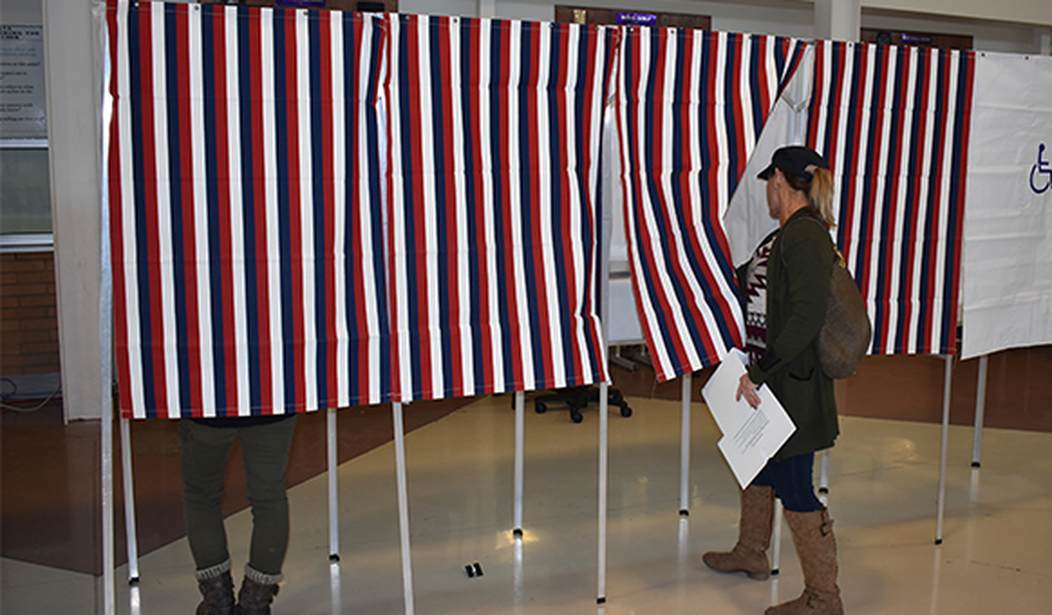Massive problems in Georgia’s primary election have all the earmarks of being repeated again and again across the country in November.
In a word, it’s a clusterfark.
It’s the worst of both possible worlds in Georgia: long lines at polling stations and a massive number of absentee ballots that haven’t even been counted yet. Most of the problems are occurring in metro Atlanta.
The problems stem from bad management and an overburdened system. There aren’t enough workers at the polls to help voters figure out how to cast a ballot with the new machines. This has led to waits of three hours or more to vote in some precincts. Absentee ballots have been piling up in registrar’s offices across the state because there’s no one available to tabulate them.
The finger-pointing goes beyond details of the law. [Georgia Secretary of State Brad] Raffensperger correctly noted that county officials train poll workers, including on the use of the new voting machines. But Raffensperger is the state’s chief elections official who decides how many machines to send to each county, and his office provides training curriculum for local officials.
On absentee ballots, the Republican secretary of state pushed unprecedented no-fault absentee access, paying to send an application to every Georgian on the active voter rolls. But, as Barron noted, neither the secretary of state nor the legislature provided additional money for local officials to hire staff to process the influx, which dwarfed the typical primary.
Not surprisingly, Democrats blamed Republicans, while Republicans blamed Democrats, where others saw “an attack on the democratic process.”
“If there was a failure of leadership, it starts where the buck should stop, at the top. The eradication of any ‘learning curve’ rests squarely at the feet of the Georgia secretary of state, Brad Raffensperger, and his office,” Thurmond said. “It is the secretary of state’s responsibility to train, prepare and equip election staff throughout the state to ensure fair and equal access to the ballot box.”
Raffensperger’s office denied there were any technical glitches with the voting equipment itself. Instead, poll workers didn’t know how to encode voter access cards, enter PIN numbers correctly or plug machines into power supplies.
Poll workers said that wasn’t always the case. They said they couldn’t log into voter check-in tablets, and ballots didn’t always display on touchscreens.
Actually, the responsibility to train election workers does not “start at the top.” Local officials are fully responsible for hiring and training the workers. The secretary of state’s office supplies the machines and the education manuals to train the workers.
Why were the problems localized to a few precincts in Atlanta and Fulton County?
State Rep. William Boddie said Fulton was in a “complete meltdown.”
“My phone hasn’t stopped ringing. We’re having issues throughout the county,” the East Point Democrat said. “Did they not know this was going to be a voting day for months? Fulton County’s Board of Elections can’t be let off the hook this time. It’s inexcusable.”
Michael McDonald, who runs the United States Elections Project at the University of Florida, said, “I have never seen the scale of election failures happening in Georgia today,” McDonald said. “This does not bode well for November.”
It doesn’t need to be pointed out that the fraud potential of all those ballots sitting around not being counted is critical. But don’t tell that to Stacey Abrams and other Democrats who equate long lines at polling places—because voters and workers are too stupid to operate a voting machine—with “voter suppression.”
As an aside, Jon Ossoff, running for the Democratic Party Senate nomination, may (or may not) have won an outright victory. A candidate needs 50 percent to avoid a runoff and Ossoff stands at 49 percent with tens of thousands of ballots remaining to be counted.
A “complete meltdown” might be a good description of what happens on Election Day and beyond in November.









Join the conversation as a VIP Member